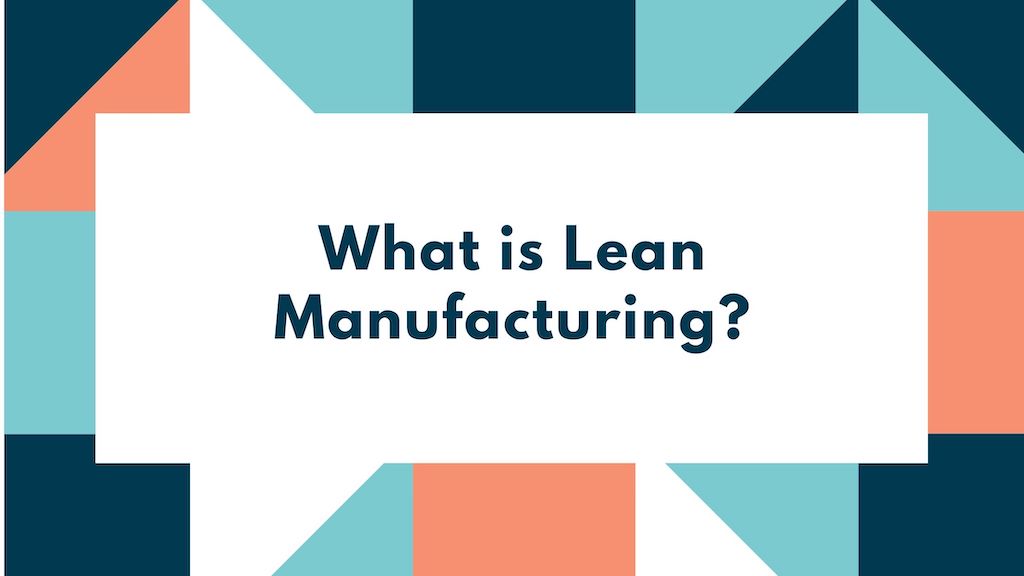A Complete guide to Lean Manufacturing – Blog series #1/52

Do you want to become a Master in Lean Manufacturing, here is the best choice for you. We are initiating a weekly Lean Blog series in which we will be explaining about what is Lean Manufacturing, its tools and Implementation methods in simple blogs. We will be posting one blog a week about Lean Manufacturing and this is the 1st week of the series
We are starting the series by Knowing about what is Lean Manufacturing, Why should we adopt Lean Manufacturing and where can we use the Lean Philosophies.
Toyota started a set of activities around 1960’s which are aimed at improving productivity, Quality and delivery performance and perfected it over the next 20 years. These activities also focused on reducing Work In Progress (WIP). Toyota became world’s largest Automotive company and has one of the best quality and reliability ratings in the industry. These activities laid the foundation of Toyota and are now collectively called “Toyota Production System”
The western world renamed the “Toyota Production System” to “Lean Manufacturing” which makes it appealing to other industries and can be followed in many other countries.
Lean Manufacturing is a systematic approach to identifying and eliminating waste (non-value added activities) and improving the productivity in a faster and efficient manner, through the Pull of the Customer and Continuous improvements!
In simple words, Lean Manufacturing is all about Eliminating wastes. Wastes are the activities that do not transform or change the product physically or chemically. There are 3 categories of wastes.
Lean manufacturing helps in increasing the productivity, quality, deliverability and reliability of the process by reducing the wastes (non value added activities), which means that there is no requirement of additional resources to improve the productivity.
In the current competitive market scenario it is essential to provide the service with lowest/ reasonable cost, Lean manufacturing helps to achieve this feet simply by reducing the wastes (non value adding activities).
On the other side Lean Manufacturing focuses on Process level improvement, which mean that the reliability of the process increases resulting in hassle free workplace.
Lean philosophy can be applied to all industries. Automotive, Machine shops, Castings and Forgings, Plastic components, Fabrication, Medical Devices, Leather, Footwear, Food Processing and many other industries are following lean principles. Lean can be applied whether the company is small, medium or large.
Lean can be applied to Service Industries also. There are many large Hotel Chains that are embracing Lean initiatives. Major Hospitals and Restaurant companies are also using Lean principles.
Here we are at the end of our Very first blog of the Lean Series. Now we have learnt about what is Lean Manufacturing, why it is so important to introduce Lean Manufacturing in your company and where can we use the Lean Philosophy, Next week we will learn about the History of Lean Manufacturing.
If you want to implement Lean in your company contact us.
Subscribe to our Newsletters for receiving updates about our Weekly blogs.
Contact us for a consultation on how Hash LLP can help your business with Lean Manufacturing.
+91 9176613965
Toyota started a set of activities around 1960’s which are aimed at improving productivity, Quality and delivery performance and perfected it over the next 20 years. These activities also focused on reducing Work In Progress (WIP). Toyota became world’s largest Automotive company and has one of the best quality and reliability ratings in the industry. These activities laid the foundation of Toyota and are now collectively called “Toyota Production System”
The western world renamed the “Toyota Production System” to “Lean Manufacturing” which makes it appealing to other industries and can be followed in many other countries.
Lean Manufacturing is a systematic approach to identifying and eliminating waste (non-value added activities) and improving the productivity in a faster and efficient manner, through the Pull of the Customer and Continuous improvements!
In simple words, Lean Manufacturing is all about Eliminating wastes. Wastes are the activities that do not transform or change the product physically or chemically. There are 3 categories of wastes.
Lean manufacturing helps in increasing the productivity, quality, deliverability and reliability of the process by reducing the wastes (non value added activities), which means that there is no requirement of additional resources to improve the productivity.
In the current competitive market scenario it is essential to provide the service with lowest/ reasonable cost, Lean manufacturing helps to achieve this feet simply by reducing the wastes (non value adding activities).
On the other side Lean Manufacturing focuses on Process level improvement, which mean that the reliability of the process increases resulting in hassle free workplace.
Lean philosophy can be applied to all industries. Automotive, Machine shops, Castings and Forgings, Plastic components, Fabrication, Medical Devices, Leather, Footwear, Food Processing and many other industries are following lean principles. Lean can be applied whether the company is small, medium or large.
Lean can be applied to Service Industries also. There are many large Hotel Chains that are embracing Lean initiatives. Major Hospitals and Restaurant companies are also using Lean principles.
Here we are at the end of our Very first blog of the Lean Series. Now we have learnt about what is Lean Manufacturing, why it is so important to introduce Lean Manufacturing in your company and where can we use the Lean Philosophy, Next week we will learn about the History of Lean Manufacturing.
If you want to implement Lean in your company contact us.
Subscribe to our Newsletters for receiving updates about our Weekly blogs.

Join 3500+ Professionals who receive our Weekly Newsletter containing Simple and Practical ideas to help achieve Results in their companies.
Hash Management Services LLP, 2023 © All Rights Reserved